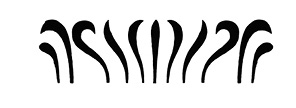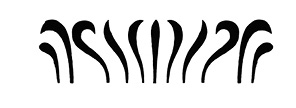Founded in 2020 by Larisa Ovalles Paulino and Aaron Weller, PĀR is an independent research and design practice that positions regional design and planning issues within the wider social and environmental justice movements, particularly through their study and work for underrepresented communities and geographies.
Aaron and Larisa are spatial thinkers, advocates, and pragmatic professional actors. PĀR is their platform to engage and collaborate with elected officials, private stakeholders, and community groups who are interested to understand and reform the constructed environment for the common good.
Larisa has 10+ years of urban design and planning experience for the Urban Risk Lab MIT, ORG Permanent Modernity, and Architect Christian Kerez. Aaron has 15+ years of urban design and building experience for ORG Permanent Modernity, NADAAA, and Gray Organschi Architecture. Aaron is a licensed architect in New York, Michigan, and Massachusetts.
South Bend:
Thinking in terms of Space and Justice
Justice, and injustice, has a spatial expression that is representative of and contributes to the social relations of a particular place.
The intersection of race and class in the city of South Bend points to a geography of concentrated poverty for minority populations on the city’s West Side.
Grand Haven:
Coastal Curation and Conservation
Grand Haven has approximately 10 miles of coastline at the nexus of Lake Michigan and the Grand River.
The city's future prosperity will remain tied to a careful curation, conservation, and utilization of the economic, community, and environmental opportunities in and around the city’s coastlines.
Upper Mississippi River:
Geographies of Agriculture
The Mississippi River is a wild and impressive body. The river is one of the world’s major water systems, in terms of size, habitat diversity, and biological productivity. However, this global ecological resource is largely only maintained at the river's edges. Everywhere in between, land is transformed into vast territories of productive landscape and small hubs of urban life.
VISION ADVOCACY
VISION ADVOCACY
PĀR
DESIGN RESEARCH
PĀR is a research and design initiative for Projects on the Architecture of the Region





© PĀR
VISION ADVOCACY
The Lower Great Lakes: Ecological Corridors
Deforested and once much wetter landscapes such as the Lower Great Lakes are fragmented and struggling to sustain diverse plant, animal, and aquatic species. Corridors are able to repair fragmented landscapes. A diverse and connected landscape provides opportunities to enhance existing agricultural and urban settlements and also create new and mutually beneficial relationships with wildlife habitats and natural ecologies







